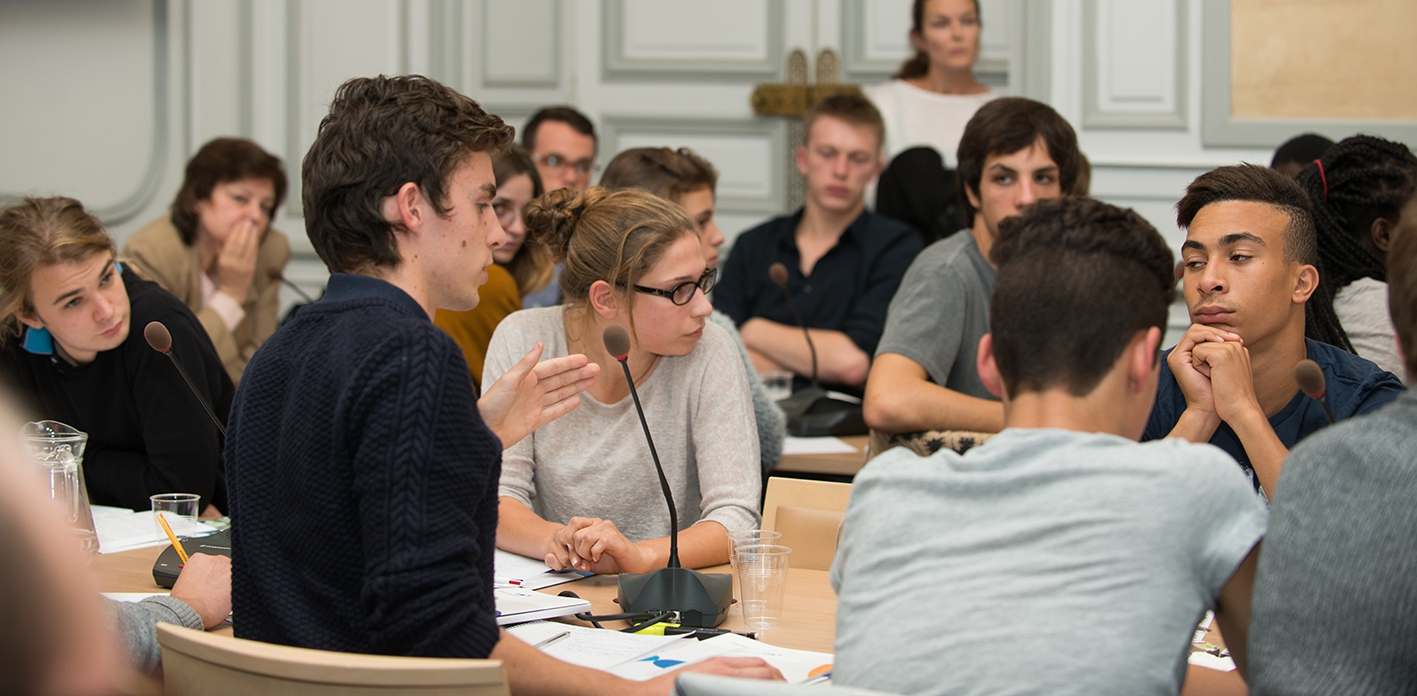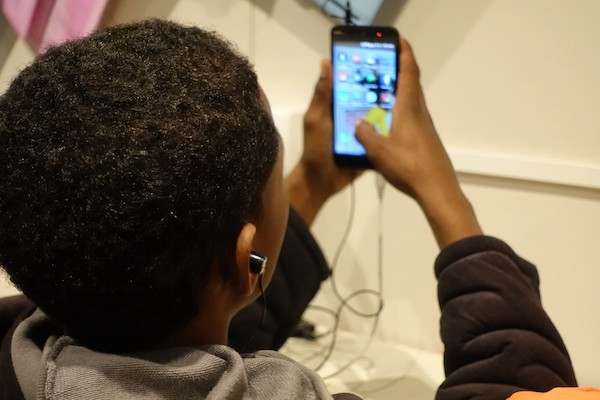"Contrary to what is often put forward in the dominant discourse, young people have not given up all involvement in public affairs. Recent surveys have shown that they are even more involved than the not-so-young, putting certain preconceived ideas into perspective, describing them as massively withdrawn into a frigid individualism and locked into civic apathy", observes political scientist Anne Muxel, Director of Research (CNRS) at Cevipof (Sciences Po), in TheConversation.
Numerous studies have highlighted the singularity of this age group. With regard to voting, surveys on electoral participation show that, overall, young people are more abstentionist than older people, even if the majority of them vote intermittently rather than systematically abstaining. Last year's Youth Barometer (2023) highlighted the fact that 18-30 year-olds were more involved in other forms of participation (petitions, taking part in demonstrations, strikes, civil disobedience actions, etc.) than their elders. Signing a petition or defending a cause on the Internet or social networks remained, for example, the most widespread form of civic involvement among 18-30 year-olds (40% versus 32% of those aged 31 and over in 2023.
Two recent surveys document this finding of a commitment by young people that is not weakening, but tending to change": the Baromètre 2024 de la jeunesse (Youth Barometer 2024 ) from the Direction de la jeunesse, de l'éducation populaire et de la vie associative (DJEPVA) and the " Jeune(s) en France" survey for The Conversation France. These two surveys provide a clearer picture of young people's state of mind, their confidence or concern about the future, the causes they defend and the ways in which they get involved.
Références :
4 out of 10 young people in 2024 signed a petition or defended a cause online
The annual Youth Barometer, carried out by the Centre de recherche pour l'étude et l'observation des conditions de vie (CREDOC), on behalf of DJEPVA, has surveyed around 4,000 young people aged 18 to 30 since 2016. Since 2023, the barometer sample has been extended to include minors aged 15 to 17.
In 2024, 30% of young people aged 15 to 30 said they had volunteered their time to an association at least once a month over the past 12 months. This indicator is five points higher than in 2023.
In addition to volunteering with associations, the Youth Barometer also documents other forms of civic mobilization by young people and their elders: online petitions or statements, participation in demonstrations, strikes, public consultations, etc.
23% said they had taken part in a public consultation.
In 2024, the main form of participation remains signing a petition or taking a stand on the Internet, which concerns 41% of young people (+3 points), a stable figure after a steady decline between 2021 and 2023.
Young women are more likely in 2024 (44%) to sign a petition or take a stand on the Internet than young men (38%).
However, digital engagement in 2024 is not back to its 2020 level, "which could confirm the hypothesis of a withdrawal movement following the overinvestment in screens during the health crisis" note Sandra Hoibian, Charlotte Millot and Jörg Müller (CREDOC) and Amélie Charruault (INJEP).
In 2020, the Baromètre de la jeunesse recorded an increase in all forms of civic participation, not only compared to 2019, but also over the long term. In 2020, 47% of 18-30 year-olds had signed a petition or defended a cause on the Internet.
Référence :
"Consistent digital participation
In the Jeunes en France survey, commissioned by The Conversation and carried out in October 2023 by the George(s) Institute, 6 out of 10 18-24 year olds said they were committedand among them, 12% are very committed. Only a third of young people (35%) have given up any idea of commitment.
" The concrete implementation of the commitment reveals a number of protest actions " observes Anne Muxel: 23% have boycotted products or companies several times, 18% have taken part in a demonstration several times, 14% in a strike, 11% in a company or university blockade. "This relative familiarity with political protest culture is characteristic of the politicization of younger generations in most European democracies.
Référence :
A significant number of young people mention being or having been members of a political party (19%) or trade union (16%). However, the voluntary sector appears more attractive: 44% of young people have joined this type of organization. "In this voluntary and militant register, young people are genuinely available".
40% of young people admit to sharing their opinions on social networks (versus 27% of the French average), and 43% to relaying posts by influencers on causes close to their hearts (versus 25% on average).
Among the causes that most mobilize the young people surveyed, food waste comes first, followed by environmental protection. More than 4 out of 10 young people admit to having already made a commitment to one of these causes (45% and 43% respectively).
Attention to the issues of discrimination and violence is also essential. The fight against violence against women mobilizes more than 4 out of 10 young people, as does the fight against racism and discrimination (42% already involved, and 39% who could become involved). 42% of young people are already committed to animal welfare.
"The survey also records a revival of patriotism. One young person in five (20%) acknowledges that this is a cause to which they have already committed themselves, and 40% say they are considering doing so (...) Today, almost two-thirds of young French people (65%) say that if need be, they would be ready to commit themselves to defending their country in the event of conflict, and one in two (51%) say they are ready to risk their lives to do so.
Référence :
Ambivalence towards the media
"Fabrice Rousselot, Editorial Director of The Conversation France, observes : "Because they find their bearings in this close-knit environment, the young people we interviewed appear highly ambiguous when it comes to the world portrayed by the media.
When young people decide to get informed, their priority is not politics or the economy. They prefer to turn to cultural news (declared interest rating of 7/10), related to the environment, health or science (7/10) or sports (6/10): declared interest is much lower for national politics.
Faced with current events, they say they are both worried (41%) and curious (36%), tired (33%) and optimistic (24%). But anxiety (25%) and mistrust (29%) don't necessarily lead to indignation (14%) or mobilization (10%).
On average, young women say they are more worried than men (48% vs. 33%), more tired (39% vs. 26%), more anxious (32% vs. 18%) or more overwhelmed (30% vs. 20%).
Référence :







